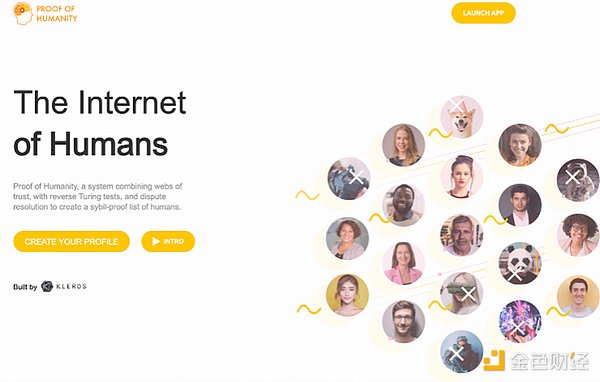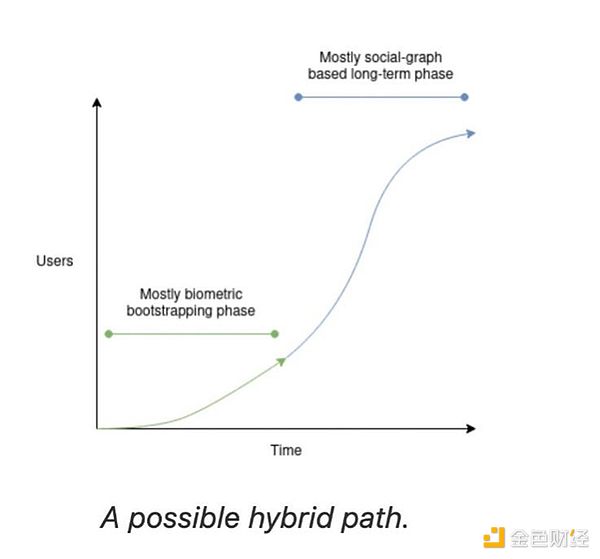Author: LianGuaiul Veradittakit, Partner at LianGuaintera Capital; Translation: LianGuaixiaozou
In 2017, a group of researchers from MIT Media Lab claimed in Wired magazine that decentralized social networks would never work. In their article, they listed three impossible challenges for success: (1) acquiring (and retaining) users from scratch; (2) handling user personal information (incorrectly); (3) lucrative user advertising. They believed that in these three aspects, the scale and economic impact of existing tech giants like Facebook, Twitter, and Google are too great to leave any room for significant competition.
Five years later, what was once deemed “impossible” seems less distant, and our conceptualization of social media networks appears to be shifting. In this article, we will explore how the new concept of decentralized social (DeSo) can address these “age-old” problems.
1. The Issue of User Identity in Social Media
- Examining the Importance of Decentralization in Rollups from Three Perspectives
- Earn while lying down’ 8% DAI savings rate attracts nearly $700 million to MakerDAO
- Binance Labs announced an investment of $5 million to purchase CRV and support the deployment of Curve on the BNB Chain.
Modern social media faces a unique problem with bots. While social media platforms have a duty to maintain freedom of speech, the issue becomes thorny when the “users” are not actual users but rather bots. And it has been proven that bots can have a significant impact on public discourse, from alleged meddling in US presidential elections to influencing the public opinion on the COVID-19 pandemic. Particularly in cases where anonymity, security, and privacy are emphasized, any decentralized social media platform inevitably inherits the “bot problem” – fundamentally, how do you convince people that the accounts on your platform are human and not bots, especially in the era of advanced artificial intelligence?
The traditional KYC protocol is a naive approach that immediately encounters privacy issues – the other side of the coin. How and why should you trust a social media platform that it possesses our sensitive data trove (from identity information to private messages and financial transactions), which can reproduce a person’s entire personal, social, and professional life?
Therefore, the “user identity” issue is the tension between verifying user real identities and ensuring personal data privacy. In this article, we will explore two approaches to address this issue: biometric authentication (using zero-knowledge proofs) and social endorsements.
2. Worldcoin and Biometric Authentication
In the realm of “proof of personhood,” Worldcoin is arguably one of the most prominent and controversial projects. Apart from having the support of OpenAI’s renowned CEO Sam Altman, Worldcoin’s method for addressing the “proof of personhood” issue is straightforward: using iris scanning to create biometric proof that you are human (as robots don’t have retinas) and obtaining verification tokens from it. In terms of data privacy, Worldcoin claims to use zero-knowledge proofs to ensure securely storing the obtained biometric data.
The theory behind Worldcoin is that as artificial intelligence plays an increasingly important role in society, there needs to be a way to distinguish between humans and robots, and the key is to have a privacy-protected and decentralized method. By using the iris scanning function of Worldcoin orb, people can obtain a “World ID” similar to a digital passport, which enables the recipient to potentially qualify for a Universal Basic Income (UBI) mechanism based on cryptocurrency and participate in a new mechanism for global democratic governance. Essentially, this World ID is intended to serve as a social primitive guiding the future digital social network.
In its documentation, Worldcoin emphasizes how its solution prioritizes privacy. For example, it claims to delete the images collected by the Orb, only storing the hash value of the user’s iris and running zero-knowledge proofs (zk-SNARKs) to share personality verification information without revealing any personal data. Although in the current promotion phase, these hash values are stored in a centralized database, the team is committed to storing these iris hash data on the chain once the hashing algorithm is fully mature in the long run.
However, despite these privacy protection statements, there are still many controversies regarding real privacy, security, and fair guarantees. For example, there are claims that the credentials of Worldcoin operators have been stolen and World IDs are being sold on the digital black market, allowing users to obtain Worldcoin tokens without undergoing iris scanning. There are also overall fairness issues, with MIT Technology Review publishing a harsh article in April 2022 discussing the deception, manipulation, and exploitation of nearly 500,000 users (mostly in developing countries) during the testing phase, even calling it “crypto-colonialism”. In fact, as of August 2, 2023, Kenya, the largest hub of Worldcoin before, has banned the use of Worldcoin scanning due to security, privacy, and financial considerations.
In addition to these specific projects that have been controversial, there are also broader concerns about Worldcoin’s overall approach of using dedicated hardware for biometric authentication. Because the Orb is essentially a hardware device, even if the Worldcoin software is perfect, there is no guarantee that there are no hardware backdoors that could secretly collect users’ real biometric data or insert false profiles into the system by Worldcoin (or other third-party manufacturers). For skeptics, all of Worldcoin’s privacy assurances (zero-knowledge proofs, iris hashing, on-chain decentralization) seem to be just an ironic argument, as if saying, “Trust me, brother, we are a trustless solution.”
3. Human identity verification and social guarantee
Another approach to solving the problem of personality verification is to use a social guarantee method. Essentially, if verified humans Alice, Bob, Charlie, and David all “guarantee” that Emily is a verified human, then Emily is likely to be a human rather than a robot. Therefore, the core issue here is a game theory design problem – how do we design incentive mechanisms to maximize our ability to “verify humans”.

“Human identity verification” is one of the oldest and most important projects in this field. To “prove that you are human,” you need to: (1) submit your personal information, photos, and videos, as well as a deposit of 0.125 ETH, (2) have a registered human vouch for you, and (3) pass before the “challenge period.” If someone questions you during this period, the case will be submitted to Kleros decentralized court, and the deposit will be at risk.
In the vouching process, users are first paired with vouches through a vouch form. After users are paired with their own vouches, they have a video call to verify if the personal information matches the real person. Similar to the concept of Worldcoin, the human identity verification community also has a concept of Universal Basic Income (UBI) available to those who have been verified through human identity verification.
Other projects that use social graphs for personality verification include BrightID’s video call verification (where everyone can verify each other), Idena’s ongoing captcha creation and solving game, and Circles’ trust-based small groups.
Perhaps the biggest appeal of these social vouching platforms is that they don’t seem as invasive as Worldcoin, which actually requires you to scan your iris in front of a metal orb. Some of these methods, such as Idena’s captcha “checkpoints,” even seem to retain a certain degree of anonymity and do not require the sharing of large amounts of personal data or third-party authentication centers.
4. The Future of Personality Verification
With the continuous development of artificial intelligence and its increasing resemblance to humans, innovative personality verification mechanisms are becoming increasingly important, not only for the discussion of Universal Basic Income and other incentives in many personality verification projects, but more importantly as a way to better purify and regulate future social networks.
However, from data privacy to the intrusiveness of the process, to determining the validity of personality, this process involves many trade-offs and is one of the famous “cryptocurrency challenges.” As Vitalik Buterin himself said, there seems to be no ideal form of personality verification, and he proposed a possible hybrid path: starting with biometric-based methods but transitioning to a more social graph-based approach in the long term.

Looking ahead, this is a field that requires more transparency in terms of processes, code, and data. In short, there should not be an ironic paradox when users need to “trust that this is a trustless solution.” Only through this can we truly create a social network that aligns with the original vision of cryptocurrency (decentralized and privacy-preserving).
Like what you're reading? Subscribe to our top stories.
We will continue to update Gambling Chain; if you have any questions or suggestions, please contact us!